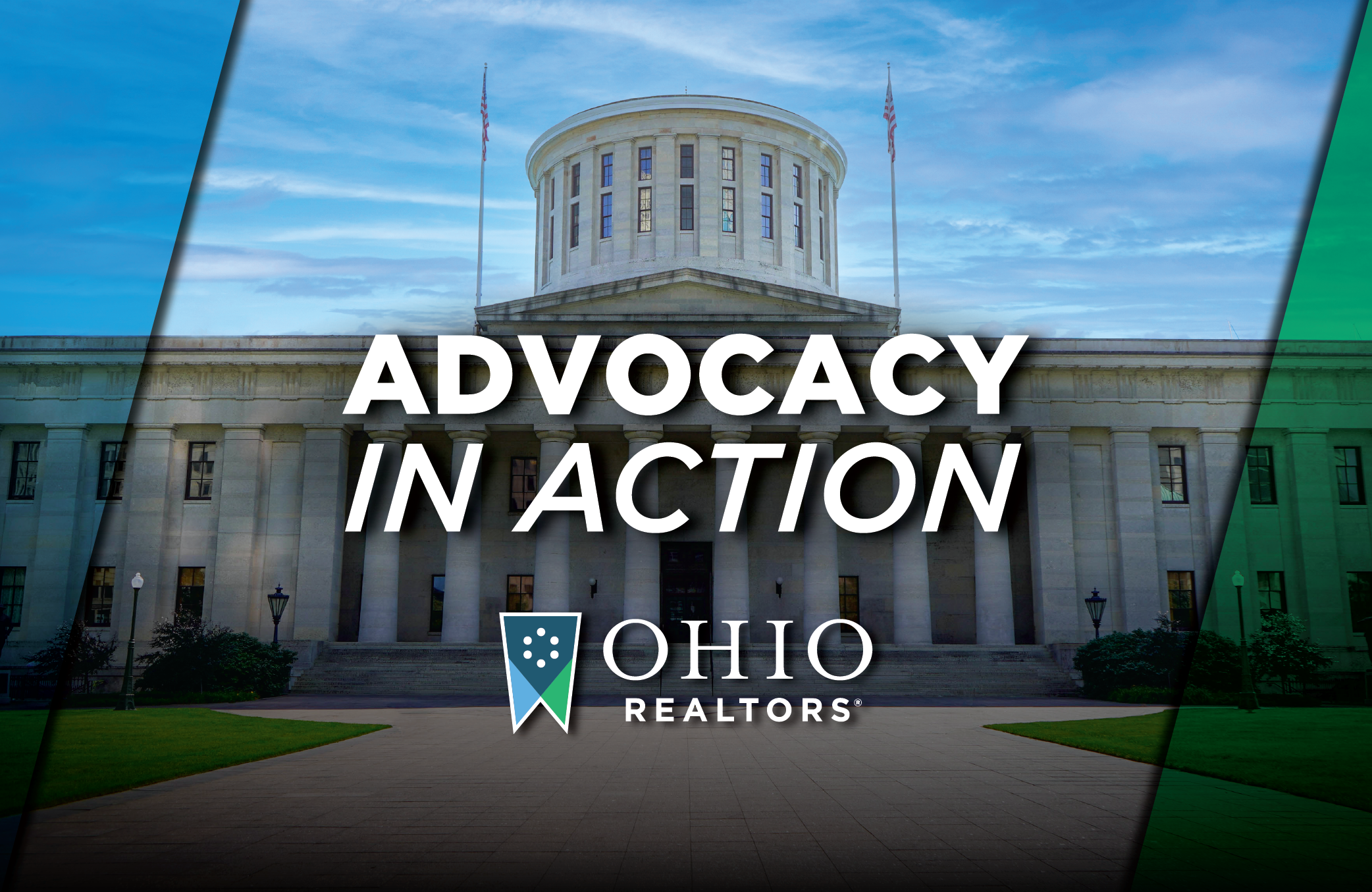
New Property Tax Recommendations Released: What Comes Next?
The Property Tax Working Group created by Governor DeWine has released its long-awaited report, outlining a slate of recommendations aimed at delivering property tax relief while maintaining local funding stability. The report follows a year of intense legislative focus on Ohio’s rising property tax burden, and comes months after several REALTOR®-supported property tax reforms were vetoed from the state budget.
Ohio REALTORS® has been at the center of this issue, advocating for meaningful reforms through our work with the Ohio Taxpayer Protection Coalition and direct engagement at the Statehouse. While we were disappointed to see key reforms removed from the final version of House Bill 96, we’ve remained committed to advancing practical, homeowner-focused solutions.
The working group’s findings will spark further debate within the Legislature, which has seen the introduction of approximately 30 bills aimed at implementing property tax reforms this session.
Below are the group’s recommendations at a glance:
- Refine County Budget Commission Authority: Allow commissions to reduce levies deemed excessive or unnecessary, after 5 years for new levies and 2 years after renewals, following a public hearing.
- Limit Taxing District Carryover Balances: Cap carryover reserves at 100% of annual operating expenses. Amounts above that must be justified to the County Budget Commission.
- Eliminate Substitute and Emergency Levies: Rename these as “fixed-sum levies” and phase them into the 20-mill floor calculation. Preserve 12.5% rollback for eligible levies.
- Require Commissioner Review of Non-Elected Board Levies: Give County Commissioners authority to approve or reject levies proposed by non-elected boards before they appear on the ballot.
- Close the LLC Loophole: Require residential and agricultural real estate owned by LLCs to follow the same conveyance and reassessment rules as individual property owners.
- Support HB 186 (as amended): Cap school district revenue growth from the 20-mill floor to inflation, returning excess collections to taxpayers as a credit, and apply similar limits to inside millage.
- Support HB 156 (with changes): Provide a property tax credit for senior and disabled homeowners based on the difference in year-over-year tax increases, not cumulative growth.
- Improve Ballot Language Transparency: Require clear summaries on levy ballots to help voters understand the financial impact of approving a levy.
- Restrict Emergency Levies: Limit emergency levies to districts in fiscal caution, watch, or emergency status, or in response to an “act of God.” Limit them to five years and apply them to the 20-mill floor.
- Clarify Interest and Cost-Sharing for Levies: Allow boards to retain interest earned on levy funds while enabling counties to recover indirect administrative costs.
- Reform Delinquency Penalties: Improve penalty and interest policies on overdue taxes for qualifying homeowners, reducing burdens on those already struggling.
- Create a Senior Property Tax Deferral Program: Allow qualifying seniors (65+, long-term residents, income-eligible) to defer property taxes and repay later, easing short-term financial pressure.
- Regularly Review Tax Exemptions: Establish a formal review process for property tax exemptions to ensure they still serve their intended purpose and consider rolling back ineffective ones.
- Restructure Reappraisal Schedules: Rebalance sexennial reappraisals and triennial updates to prevent regional spikes in reassessment and create more uniform valuation timelines.
- Support HB 154: Give school districts veto authority over residential CRA proposals that would reduce their funding, just as they have for commercial and industrial CRAs.
- Set Limits for Residential Stability Zones: Cap eligibility and impact of proposed tax-free zones targeting longtime, low-income senior homeowners to prevent broad misuse.
- Create a Government Efficiency Working Group: Study and recommend ways to consolidate or share services across Ohio’s numerous taxing jurisdictions to improve cost-efficiency.
- Acknowledge Housing Supply Impact on Tax Bills: Encourage continued legislative focus on housing shortages and zoning reform as part of long-term property tax relief.
- Prevent Property Tax Credit Abuse: Enforce rules to stop multiple claims for the same tax credit on more than one residence, protecting resources for local governments.
- Expand Homestead Exemption and Consider Circuit Breakers: Recommend raising income and value thresholds for Homestead eligibility and studying new circuit breaker models for long-term relief.
What This Means for REALTORS®
These recommendations mark a critical step in keeping property tax reform moving forward. While not all ideas align perfectly with previous REALTOR®-backed proposals, many reflect the core goals we’ve been fighting for: transparency, fairness, and relief for homeowners.
The General Assembly will now review these recommendations and determine which to advance as legislation. Ohio REALTORS® will be there every step of the way to engage lawmakers, inform members, and continue our push for a property tax system that works for all Ohioans.
Find the full report here: Property Tax Working Group

